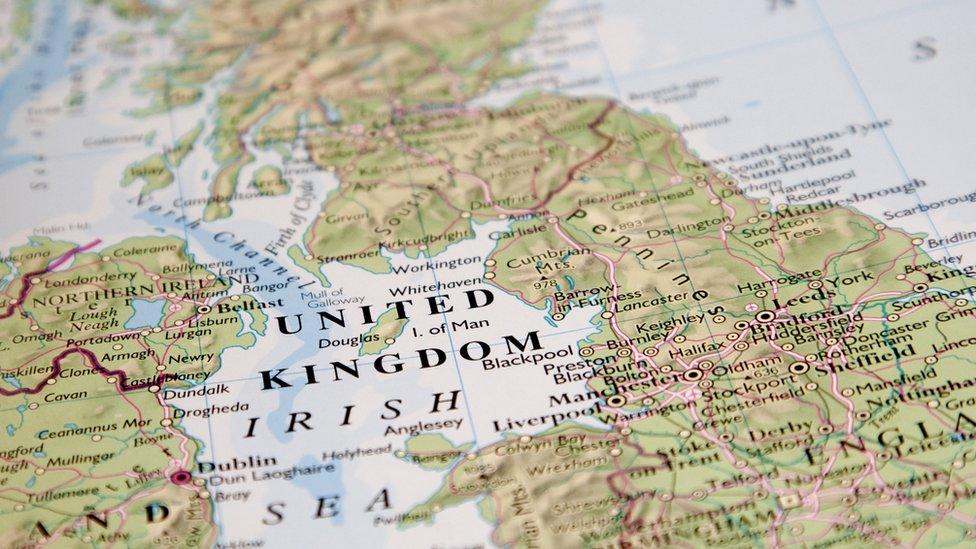NI Protocol: Orange Order's Mervyn Gibson meets EU's Maros Sefcovic
- Published
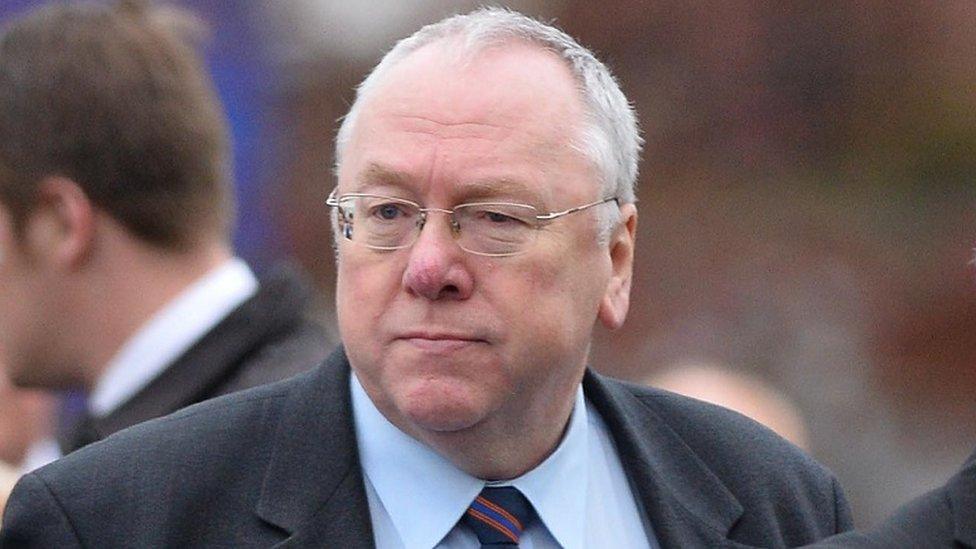
Mervyn Gibson, like many unionists, is strongly opposed to the Northern Ireland Protocol
A senior member of the Orange Order is among Northern Ireland civic leaders who have met European Commission Vice-President Maros Sefcovic.
Beforehand Mervyn Gibson said he would be repeating the position that the Northern Ireland Protocol must go.
It is the part of the Brexit deal which created the Irish Sea border, resulting in checks on goods entering Northern Ireland from Great Britain.
Mr Sefcovic also met Northern Ireland business leaders.
Speaking after the meetings, Mr Sefcovic said he was committed to finding "pragmatic solutions" to problems relating to the post-Brexit trading arrangements.
He said he hoped future problems with the Northern Ireland Protocol could be fixed permanently.
Speaking to BBC News NI, he said: "What I heard today from the business community is that they would like to see predictability, they would like to see stability, they would like to see the clear legal framework.
"And they would like get help in understanding how the new systems should work and how it should be facilitated and how we can also help them to actually benefit from the unique situation.
"What I was presenting to them was a unique opportunity to actually operate in two markets at the same time."
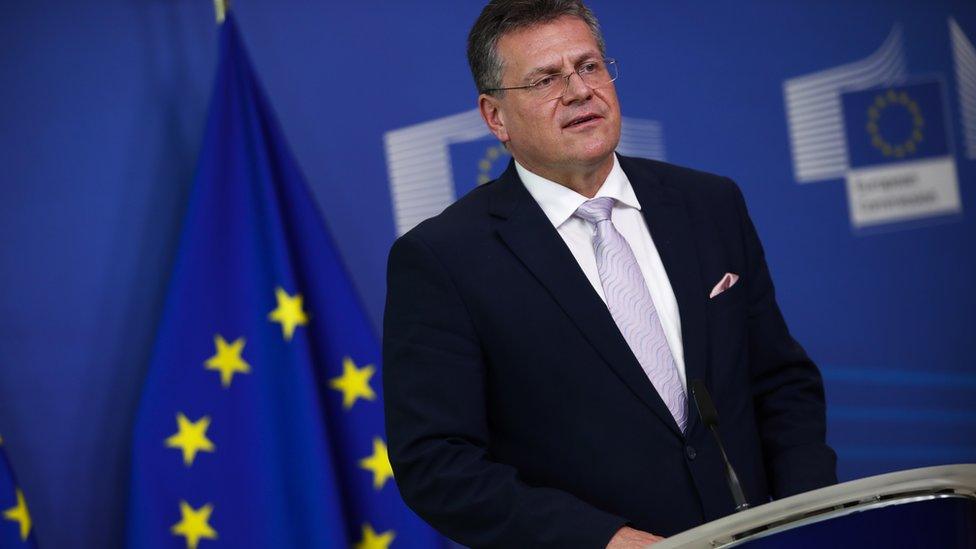
Maros Sefcovic admits the introduction of the NI Protocol has been "administratively extremely challenging"
Aodhán Connolly, director of the trade body the Northern Ireland Retail Consortium, was among the participants in the meetings.
"This was an important meeting but it must be the start of a comprehensive dialogue including the establishment of a business consultative body to ensure the EU and UK can hear business concerns and use the expertise of the NI business community," Mr Connolly said.
Mr Connolly said retailers were facing a huge challenge when "grace periods" end on 1 April.
Those grace periods mean supermarkets are not yet facing all the new processes required by the sea border.
He said the EU and UK could help ease the arrangements by reaching a fresh agreement.
"We need simplicity using things like digitisation and an auditable and certified supply chain which could deliver a much simpler Trusted Trader agreement, and a veterinary agreement to remove frictions," Mr Connolly said.
Kirsty McManus, of the Institute of Directors Northern Ireland, also attended the meeting.
"It is clear that Northern Ireland could have a competitive advantage via our dual access to Great Britain and the EU Single Market but this is being overshadowed by elements of the protocol between GB and NI which is causing friction," she said.
"Our call to the EU and UK today was for the establishment of a business consultative body to ensure we all work in a pragmatic way to delivers for all citizens in Northern Ireland."
The meeting also included Cabinet Office Minister Michael Gove and Northern Ireland Secretary Brandon Lewis, as well as representatives from farming and manufacturing.
In a tweet, the Northern Ireland Secretary said he was "pleased to have ensured that the EU heard directly from people and businesses in NI today".
Allow X content?
This article contains content provided by X. We ask for your permission before anything is loaded, as they may be using cookies and other technologies. You may want to read X’s cookie policy, external and privacy policy, external before accepting. To view this content choose ‘accept and continue’.

This week Mr Sefcovic said the introduction of the NI Protocol has been "administratively extremely challenging".
However, speaking to the Irish Parliament's EU Affairs Committee, he said that in spite of the difficulties the protocol remained the "only solution" to the issues Brexit presents for Ireland.
- Published12 February 2021
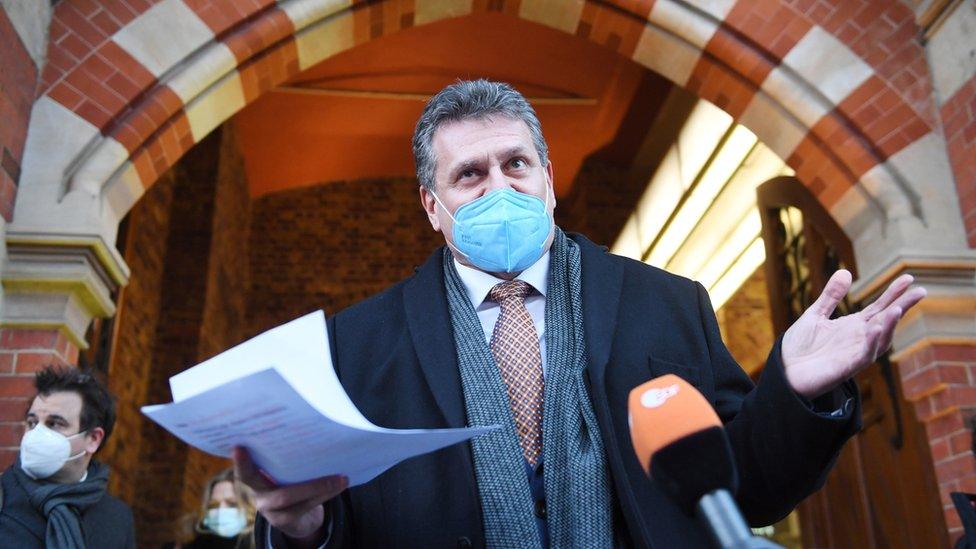
- Published11 February 2021
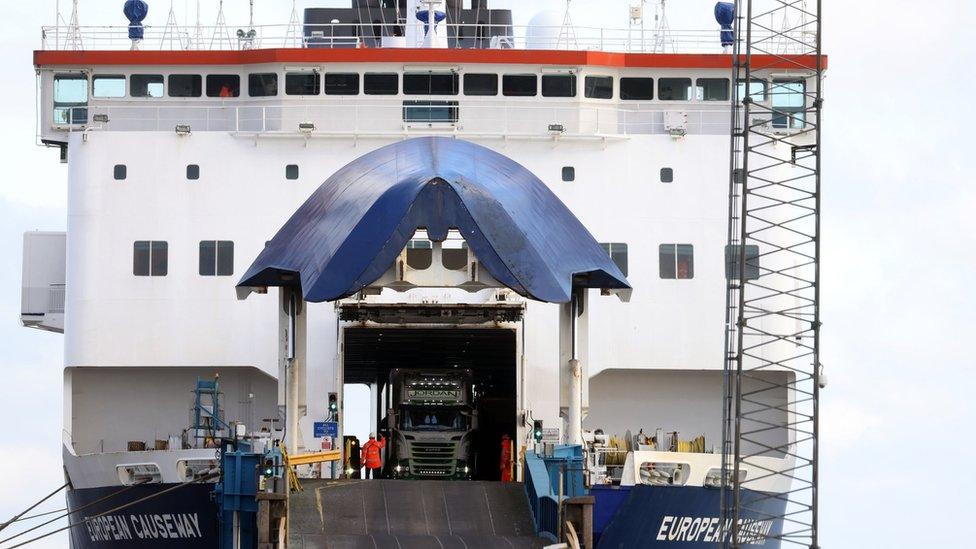
- Published6 February 2021
